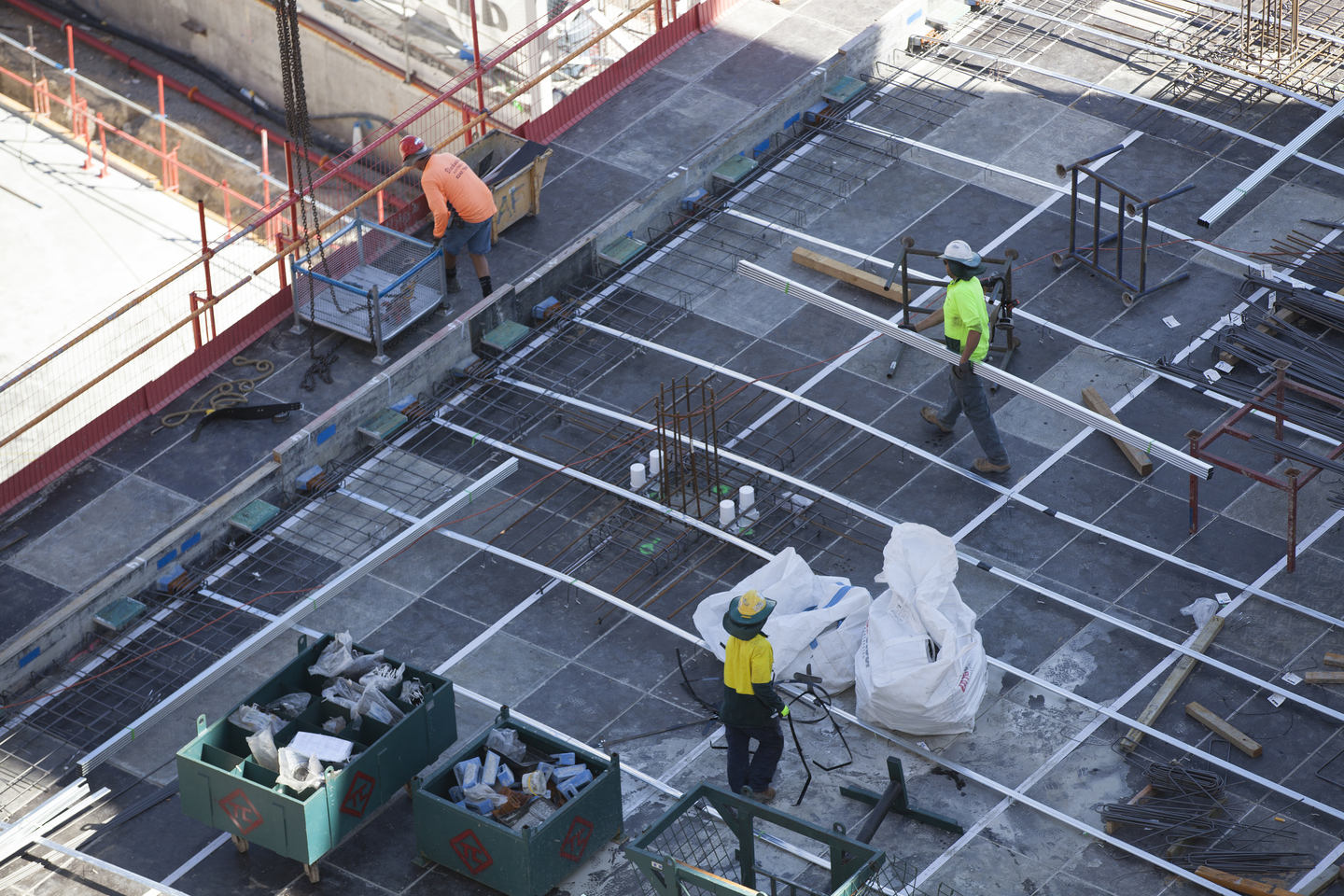Western Australia’s construction and commercial property sectors are bracing for the impacts of the COVID-19 pandemic, with imports of building materials likely to be disrupted and retail activity expected to plunge in coming weeks


Western Australia’s construction and commercial property sectors are bracing for the impacts of the COVID-19 pandemic, with imports of building materials likely to be disrupted and retail activity expected to plunge in coming weeks.
A potential shortage of construction materials has been a hot topic in east coast building markets for several weeks, with widespread closures of factories in China sparking fears of a depletion in Australian stock.
While many of those concerns had been alleviated in recent days as Chinese factories reportedly begin a return to normal operations, Western Roads Federation port carriers group chairman Matthew Bronickis told Business News a slowdown of imports was likely coming to the WA construction sector.
He said it was early days still for WA because cargo vessels delivered to the eastern seaboard before coming to WA.
“[So] we are a week and a half behind the east coast,” Mr Bronickis said.
“The east coast is feeling heavy disruptions, they are seeing downturns on imports in a substantial way.
“WA isn’t feeling it yet, but the pain’s about to be felt, where those shutdowns are starting to slow down shipping into WA.
“But a lot of products at stores such as Bunnings and other hardware chains of scale are already being affected over east.
“We are already seeing shelves at hardware stores and construction retail suppliers starting to run short and we are, in time, going to see the same experience here.
“The big question is because a lot of supplies come over from the east, when supply gets short over there, will WA get its share?”
Construction materials most at risk of running short include timber and structural steel, toilets and vanities, as well as tapware and fittings.
Mr Bronickis said the import disruption issue had been exacerbated by the rapid spread of COVID-19 through Europe and the US.
He said many importers who had diversified their supply chains and reduced their reliance on China would likely have to deal with similar issues as other countries locked down port movements.
The likely ramifications, Mr Bronickis said, would be construction delays and cost blowouts, particularly on major construction jobs.
“If you can’t get supply, you will pay whatever you can to finish the job,” he said.
“If it’s a large construction project there will be penalty clauses on there.
“In China, they have called force majeure on 1,300 companies, which means all contracts are null and void.
“Now if a builder in Australia gets to the point on construction where they are paying huge penalties and they can’t finish the job, they will simply call force majeure.
“The only choice the company has got that is doing the construction is to call force majeure, and in these circumstances they absolutely have the right to do that.”
Master Builders Association of WA executive director John Gelavis said while his members had not yet reported any major supply issues associated with COVID-19 in construction, they were nevertheless preparing for business disruption.
Last week, the state government announced that a $5 million upgrade of the Peel Health Campus would be put on hold so the hospital could concentrate on testing, the first major construction job in WA to be affected by the crisis.
Mr Gelavis said while it was too early to call what impact the coronavirus would have on the construction labour force, the association was looking closely at the issue.
“There is an element of concern, we are certainly watching this space and I know a lot of organisations are having daily meetings on the coronavirus and how to deal with these issues,” Mr Gelavis told Business News.
“We are giving members a lot of advice in regards to industrial relations issues and how to deal with staff coming to and from work and potentially being infected due to overseas travel.
“We are giving them advice on potential contract issues that may arise between the construction company and the developers and clients.
“There may be delays, and if there are delays we are encouraging developers to understand that there is a major health issue going on and to work with the construction industry to pull through this period.
“We are providing regular updates to our members on those matters and some of them are around industrial relations and contract matters.”
Mr Gelavis welcomed the federal government’s commitment of $1.3 billion in stimulus measures to keep apprentices in work, but sought clarification over whether the measure would apply to group training schemes.
“Group schemes are an important part of the training process in WA and the building and construction industry employs more than 40 per cent of apprentices, so it is a big issue,” Mr Gelavis said.
“All group schemes, regardless of their size, should be included in the stimulus package to help maintain apprentices in the system.
“I know the federal government is looking at that and will provide more clarity on that, but I think it’s important from a WA perspective that all group schemes of all sizes are included.”
In the commercial property sector, Property Council of Australia WA executive director Sandra Brewer said organisations across the state were responding decisively to the COVID-19 crisis.
Ms Brewer said many commercial landlords were increasing cleaning services and communicating closely with tenants, particularly around staff movements, but the PCA nonetheless had serious concerns about the effect on the economy.
“The expectation among building operators and owners is that there is going to be a decline in retail trade, in meetings activity and a lot of working from home,” Ms Brewer said.
“So building owners and shopping centre management are being extremely proactive, but we’re probably looking at a period where their tenants are going to have significantly declining revenues.
“The property sector relies on people getting out there, looking at properties, signing contracts for sale, and really that’s all going to slow.
“It is heartbreaking for WA because there were some really sustained positive signs for the first few months of the year and this is certainly something that we didn’t need.”
Ms Brewer called on local governments to consider the possibility of providing rates relief for local businesses.
“Landlords are saying they would love to pass on any relief they can to tenants as they face these economic conditions, so that’s something that I think could be considered by the local government sector,” she said.













